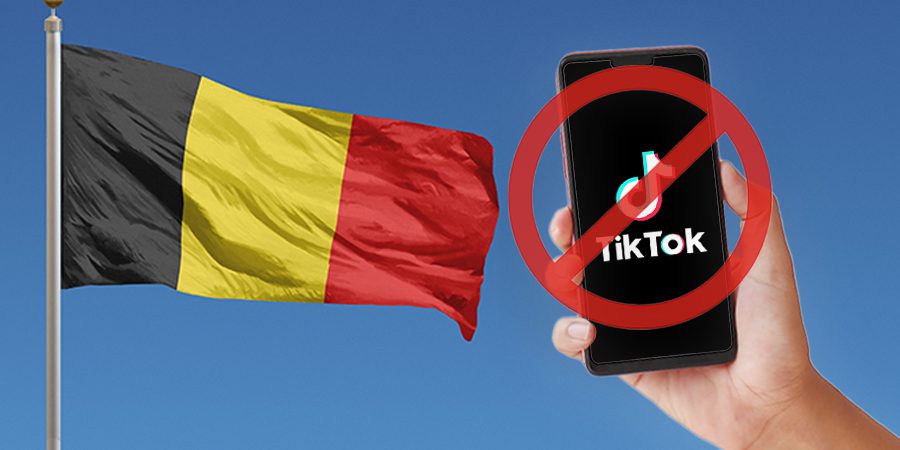
In this article, we’ll look at the reasons behind the Belgian government’s decision to ban TikTok from federal government work phones, as well as the growing global concerns about data security and Chinese government interference.
Key Takeaways:
- Belgium has banned TikTok from federal government work phones due to data security and potential Chinese government intervention concerns.
- The national security council warned about data collection and the company’s cooperation with Chinese intelligence services, leading to the ban.
- Despite TikTok’s claim about user data being stored in safe locations, the Belgian government is taking a cautious approach due to the app’s Chinese ownership.
- Several other countries, including the United States, Canada, and Denmark, have also implemented bans on TikTok due to concerns over data security and potential interference by the Chinese government.
- The TikTok controversy is part of a larger global competition between China and Western allies over technology and economic supremacy.
- ByteDance, a Chinese company that relocated its headquarters to Singapore in 2020, owns TikTok, but there are still worries about potential Chinese government involvement.
- The ban on TikTok is one example of the ongoing global concerns about data security and Chinese government interference as technology advances and digital platforms become more widespread.
Belgium Bans TikTok from Federal Government Work Phones over Data Security Concerns
Belgium’s decision to ban TikTok, a Chinese-owned video-sharing app, from work phones used by federal government employees has sparked concerns about data security and the potential for Chinese government interference.
Reasons behind the Ban
The Belgian government banned TikTok from federal government work phones after receiving warnings from the national security council.
The council expressed concerns about the app’s data collection and the company’s obligation to cooperate with Chinese intelligence services.
Belgian Prime Minister Alexander De Croo emphasized the importance of information safety, stating that “our information’s safety should come first.”
TikTok’s Response
TikTok has refuted allegations of data security risks by claiming that user data is stored in the US and Singapore and it is establishing data centers in Europe.
The company has argued that the ban was founded on “fundamentally wrong information.”
However, owing to the app’s Chinese ownership and the potential hazards linked with it, the Belgian government has taken a cautious approach.
Global Concerns
The Belgian government’s ban on TikTok from federal government work phones is not unique as other countries have taken similar action.
The European Commission and European Parliament, as well as Denmark’s defense ministry, have also banned the app due to data security and concerns about Chinese government interference.
Bans have also been implemented in Canada and the US. The controversy over TikTok is part of a global competition between China and Western allies over technology and economic power.
As the app’s popularity grows, worries about data security and Chinese government interference are expected to continue.
TikTok’s Ownership
ByteDance, the owner of TikTok, is a Chinese company that relocated its headquarters to Singapore in 2020.
Although the company claimed to be separate from its Chinese roots and largely owned by global institutional investors, concerns about Chinese government interference persist.
Belgium’s Ban and Geopolitical Context
De Croo, the Belgian Prime Minister, based the ban on warnings from the state security service and its cybersecurity center.
The agencies claimed that TikTok might collect user data and manipulate its news feed and content using algorithms.
Additionally, they warned that the app could be forced to conduct spying for the Chinese government, without providing further details.
De Croo stated that the ban was a common-sense measure due to the new geopolitical environment, where digital technology has shifted the influence and surveillance between nations to the digital world.
As a Chinese company, TikTok is obligated to cooperate with intelligence services, and it is not wise to ignore this fact.
TikTok’s Defense
TikTok has defended itself by stating that user data is stored in the US and Singapore and that new measures are being put in place to ease European concerns by storing user data in European data centers.
The company said in a statement that “the Chinese government cannot compel another sovereign nation to provide data stored in that nation’s territory.”
Conclusion
The Belgian government’s decision to ban TikTok from federal government work phones is just the latest example of countries taking steps to safeguard their citizens’ data.
As technology continues to advance and digital platforms become increasingly ubiquitous, it is likely that concerns about data security and privacy will only continue to grow.
The tussle over TikTok is just one example of the global concerns about data security and Chinese government interference that are likely to persist.
 Sections of this topic
Sections of this topic















